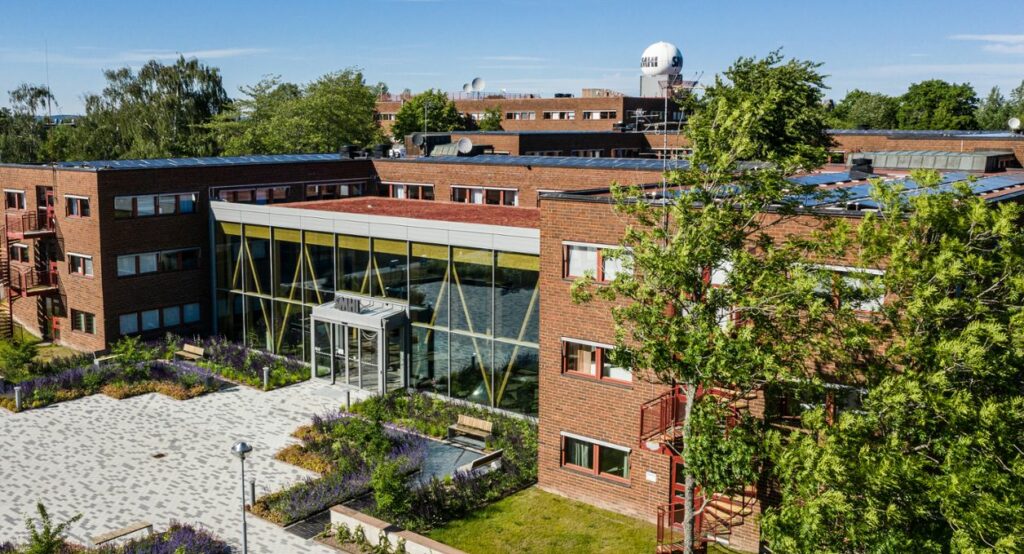HEPEX workshop 2023 – Forecasting across spatial scales and time horizons
Forecasting across spatial scales and time horizons
13-15th September 2023, Norrköping, Sweden
The programme is now ready. Find here the Workshop_Agenda_Final!
The Book of Abstracts is now available!
|
Keynote talks Forecasting socio-hydrological extremes by Giuliano Di Baldassarre, Uppsala University, Sweden “This presentation discusses how the interplay between technical, social and physical processes is influenced by the availability of climate services, with a focus on the benefits and unintended consequences of forecasting socio-hydrological extremes, i.e. floods and droughts, across spatial and temporal scales.“ Giuliano Di Baldassarre is a professor of surface water hydrology and environmental analysis at the Department of Earth Sciences of Uppsala University, as well as the director of the Centre of Natural Hazards and Disaster Science (CNDS). His research deals with risks, crises or disasters resulting from the interplay between water, environment and society with a focus on human impacts on (and responses to) hydroclimatic extremes, i.e. droughts and floods. He aims to both advance fundamental science and inform policy in the context of disaster risk reduction, climate change adaptation and sustainability. Giuliano has been the recipient of international honours, including the Plinius Medal by the European Geosciences Union (EGU), the Witherspoon Lecture Award by the American Geophysical Union (AGU), and the Consolidator Grant by the European Research Council (ERC). He was one of the leaders (also serving as the Chair between 2017-2019) of Panta Rhei, the global research initiative on water-society interactions of the International Association of Hydrological Sciences (IAHS). Giuliano published more than 150 papers in peer-reviewed journals, including multidisciplinary ones such as Nature Sustainability, Science Advances and Nature.
Energiforsk – Coordinating the hydropower industry’s hydrological research needs by Emma Hagner, Energiforsk, Sweden “We’ll dive into how Energiforsk works with R&D in hydro as well as look into the challenges our research programme Hydrological development in the hydropower industry, HUVA, is facing at the moment.“ Emma Hagner is the research area director for hydro at Energiforsk and she is responsible for their R&D portfolio in the area. Energiforsk is a research and knowledge institute that advances and coordinates energy research and continually strive to remain a natural hub for energy research – impartially working for the benefit of future energy systems.
Progress and perspectives in hydrometeorological modelling and forecasting by Antara Dasgupta, RWTH Aachen University, Germany “There has been unprecedented progress in ensemble hydro-meteorological modelling and forecasting on a range of spatiotemporal scales, leading to a variety of new challenges. These were discussed during the Joint Virtual Workshop “Connecting global to local hydrological modelling and forecasting: challenges and scientific advances” (29 June – 1 July 2021) and reviewed by the early career HEPEX community in 2023. This talk will highlight recent advances and ongoing challenges in hydrological modelling and forecasting, as well as on the use of forecasts for decision-making from global to local scales, presenting the way forward for the community from an early career perspective.“ Antara Dasgupta is currently a Tenure Track Juniorprofessor of Data Driven Computing in Civil Engineering at the RWTH Aachen University in Germany, where she tries to solve the grand challenges in hydrology using Earth Observation, data assimilation and deep learning. Previously as a Research and Technology Associate at the Luxembourg Institute of Science and Technology, she led the assimilation of EO data and physics-based models for the development of digital twins for improved hazard forecasting and estimation. As a postdoc at the University of Osnabrück, Germany, she also explored the role of deep learning in hydroinformatics and remote sensing to bolster global flood forecasting capabilities. Earlier she evaluated commercial radar satellites for flood monitoring and developed radar-based flood mapping algorithms in the industry, as the Senior Radar Scientist at Floodbase, US. AD has won numerous awards and published a number of scientific as well as popular science articles, and was recently recognized as a Rising Star in the Geospatial sector by the Geospatial World Forum. Antara is a strong advocate of EDI in the geospatial sector and co-leads the Sisters of SAR Twitter initiative, and also volunteers her time as a member of the steering committee of the Global Flood Partnership.
The rise of machine learning in forecasting – HEPEXAI?  by Florian Pappenberger, ECMWF, UK by Florian Pappenberger, ECMWF, UK
Florian Pappenberger is Deputy-Director General and leader of the Forecast Department at the European Centre for Medium-range Weather Forecasts. He is an expert in the operational delivery of weather forecasts and the forecasting of weather driven natural hazards such as floods, droughts, windstorms, forest fires and impacts on human health. He is the author of over 350 scientific publications. He is a Fellow of the Royal Geographical Society and the Royal Meteorological Society as well as member of several other professional bodies. |
Hydrological forecasting is important for managing water resources and natural ecosystems, predicting natural disasters, planning agriculture, and managing energy production. In recent years, sub-seasonal to seasonal (S2S) forecasting has become part of water management activities and tools. These forecasting systems offer a range of benefits that can help in making better decisions and preparing for extreme weather- and climate-related events. HEPEX organized its first workshop on seasonal hydrological forecasting in 2015. The success of the workshop led to a Special Issue in Hydrology and Earth System Sciences (HESS) hosting about 40 articles on “Sub-seasonal to seasonal hydrological forecasting”.
At the 2023 workshop, we will bring together researchers, operational forecasters, practitioners and users from all around the world to discuss the latest developments in hydrological forecasting and applications in the water management sector. Focus will be on exploring hydro-meteorological predictions for hydropower and its integration with other renewable energies.
We are approaching 20 years of the HEPEX community (2004-2024), and this workshop will allow us to brainstorm on the research agenda for the coming decade. The brainstorming sessions will guide forecasting developments and take into account sectoral needs and scientific opportunities. In this effort, we strongly encourage the contribution of Early Career (EC) scientists that are emerging through our EC-HEPEX group.
Participation in the workshop is open and free of charge, although in-person attendance is limited by venue capacity, and registration is required for all participants. We will start on Wednesday midday, 13 September and end on Friday midday, 15 September. For information on accommodation and travel, please see below.
Workshop themes
The workshop will be organized in different themes with panel discussions, oral presentations, poster sessions, and lots of opportunity for discussions and sharing of experience:
- Advancing forecasting of extremes (e. g. floods and droughts) and their impacts
- Towards seamless predictions across time and space
- Communicating hydro-meteorological forecasts in water management and risk-based decision making
- Defining user needs of S2S forecasts (hydro-power, groundwater, agriculture, food security, insurance companies, health, safety-risk reduction)
- Statistical, dynamical, machine-learning and hybrid systems for predicting S2S hydro-meteorological variables
- Examples of hydro-climate services and early warning services for disaster risk reduction and management of resources
- Forecasting within socio-hydrology
Deadlines and Milestones
| Deadline for receipt of abstracts | 15 June 2023 (after deadline, contact us here) |
| Letter of acceptance | 20 July 2023 |
| Letter of schedule |
20 July 2023 |
| Deadline for registration |
05 September 2023 (due to high on site participation, you can only follow the workshop online) |
How to submit an abstract?
Submit a short abstract following the template (download abstract template here) to ilias.pechlivanidis@smhi.se, by the deadline indicated above.
How to register?
You can register through this web form.
Programme
You can find here the Workshop_Agenda_Final
Venue & Logistics

The venue for the HEPEX workshop will be at the Swedish Meteorological and Hydrological Institute (SMHI), Folkborgsvägen 17, Norrköping, Sweden.
Information on travels and accommodation can be found here: Workshop_SMHI_venue-hotel-transport
Organizing and scientific committee:
- Louise Arnal (University of Saskatchewan, Canada)
- James Bennett (CSIRO, Australia)
- Marie-Amélie Boucher (Université de Sherbrooke, Canada)
- Rebecca Emerton (ECMWF, UK)
- Shaun Harrigan (ECMWF, UK)
- Ilias Pechlivanidis (SMHI, Sweden)
- Maria-Helena Ramos (INRAE, France)
- Louise Slater (University of Oxford, UK)
- Fredrik Wetterhall (ECMWF, UK)
- Andy Wood (NCAR, US)
- Massimiliano Zappa (WSL, Switzerland)
Local contact:
SMHI / Swedish Meteorological and Hydrological Institute
Norrköping, Sweden
Support funding: Energiforsk, Swedish energy research centre





0 comments